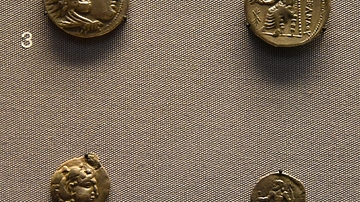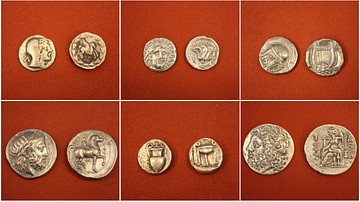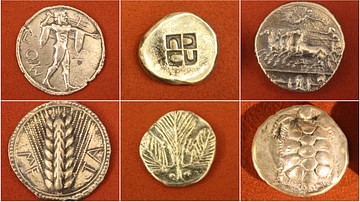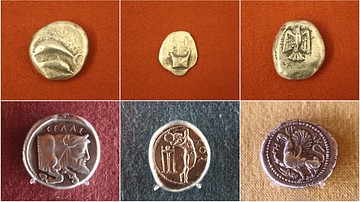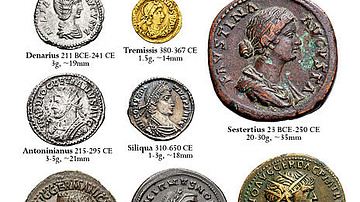Illustration
Top row (L to R):
Cos (300-190 BCE) Silver tetradrachm, crab.
Syracuse (c. 400 BCE) - Silver decadrachm, head of Arethousa with dolphins.
Macedon (306-283 BCE) - Silver tetradrachm, Poseidon with trident.
Bottom row (L to R):
Euboea (c. 485 BCE) - Silver tetradrachm, octopus in incuse square.
Knossos (2nd-1st century BCE) - Silver tetradrachm, labyrinth.
Corinth (386-307 BCE) - Silver stater, Pegasus.
(Alpha Bank Numismatics Collection, Kerkyra, Corfu)
About the Author
Cite This Work
APA Style
Cartwright, M. (2016, July 14). Greek Coins. World History Encyclopedia. Retrieved from https://www.worldhistory.org/image/5307/greek-coins/
Chicago Style
Cartwright, Mark. "Greek Coins." World History Encyclopedia. Last modified July 14, 2016. https://www.worldhistory.org/image/5307/greek-coins/.
MLA Style
Cartwright, Mark. "Greek Coins." World History Encyclopedia. World History Encyclopedia, 14 Jul 2016. Web. 14 Apr 2025.


